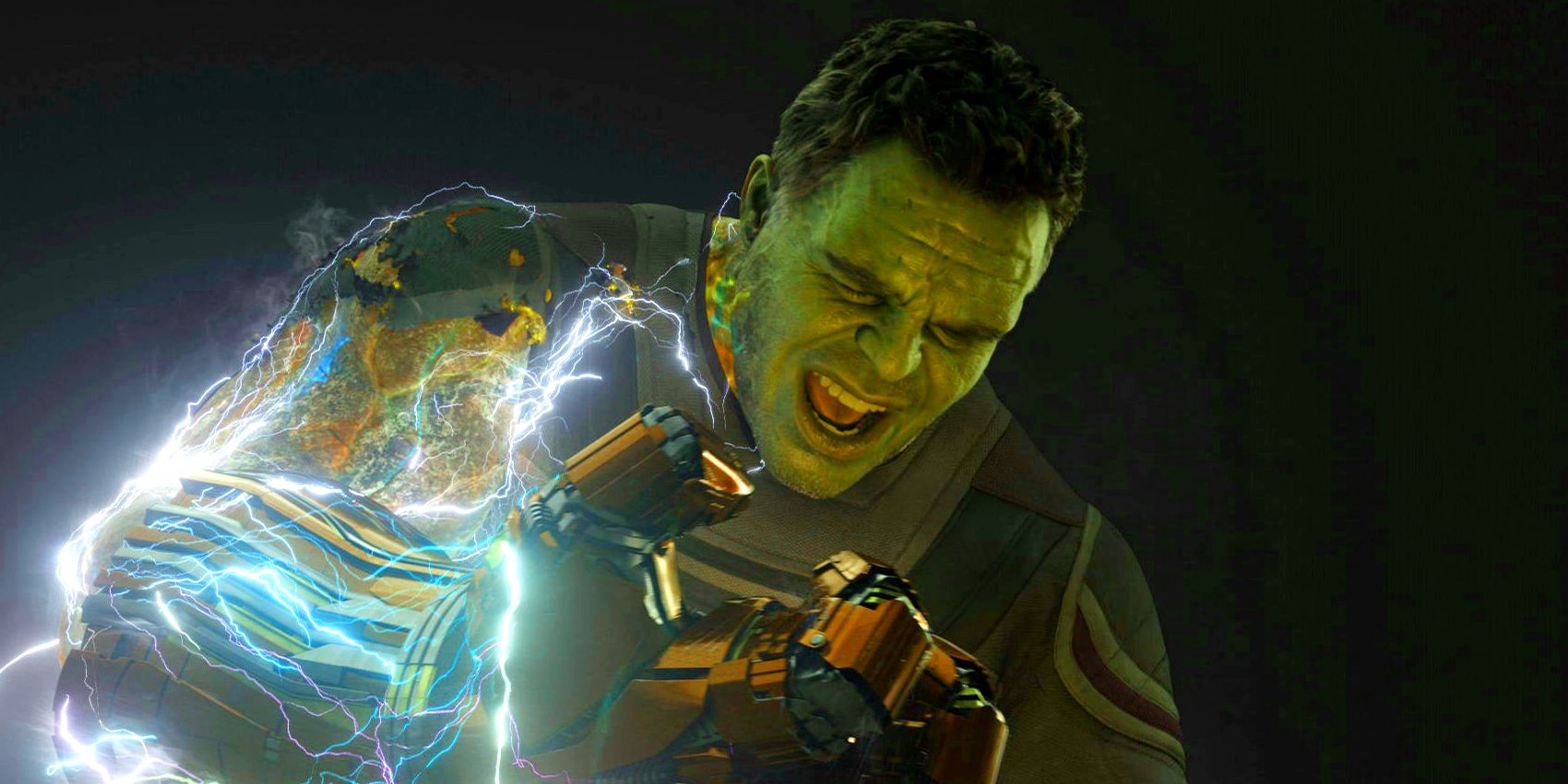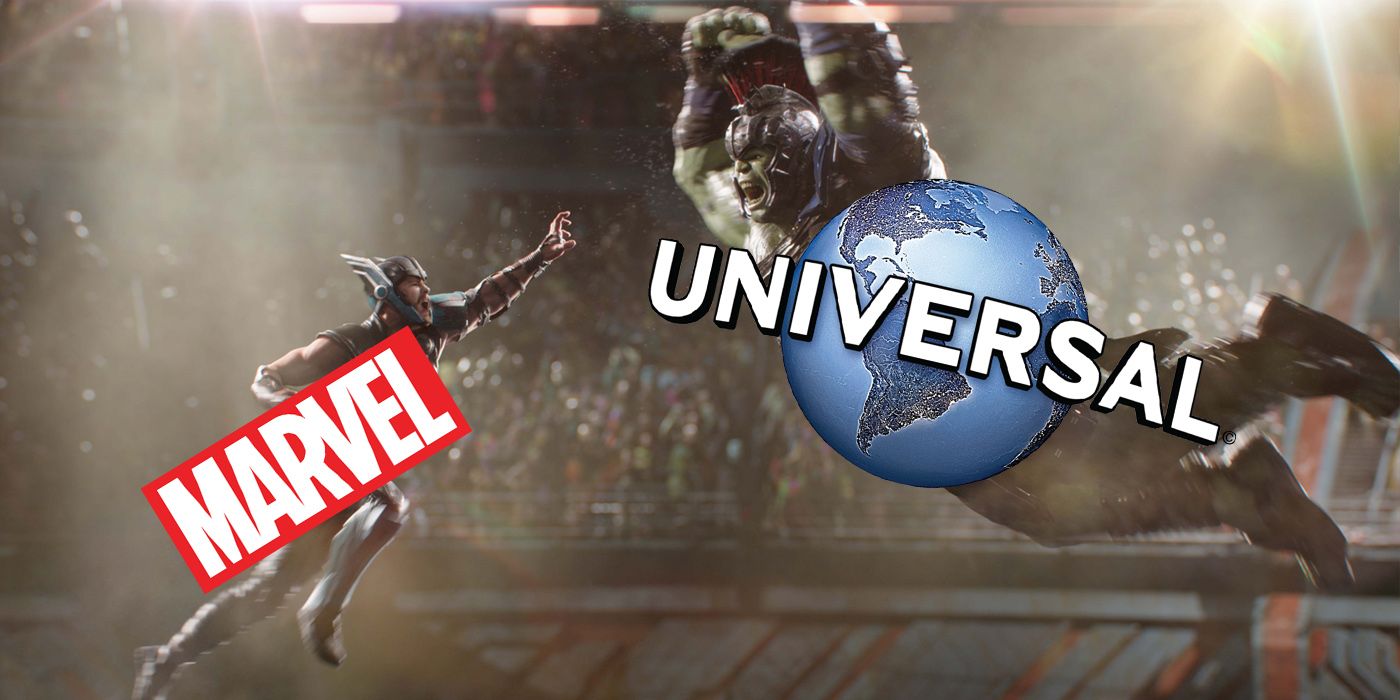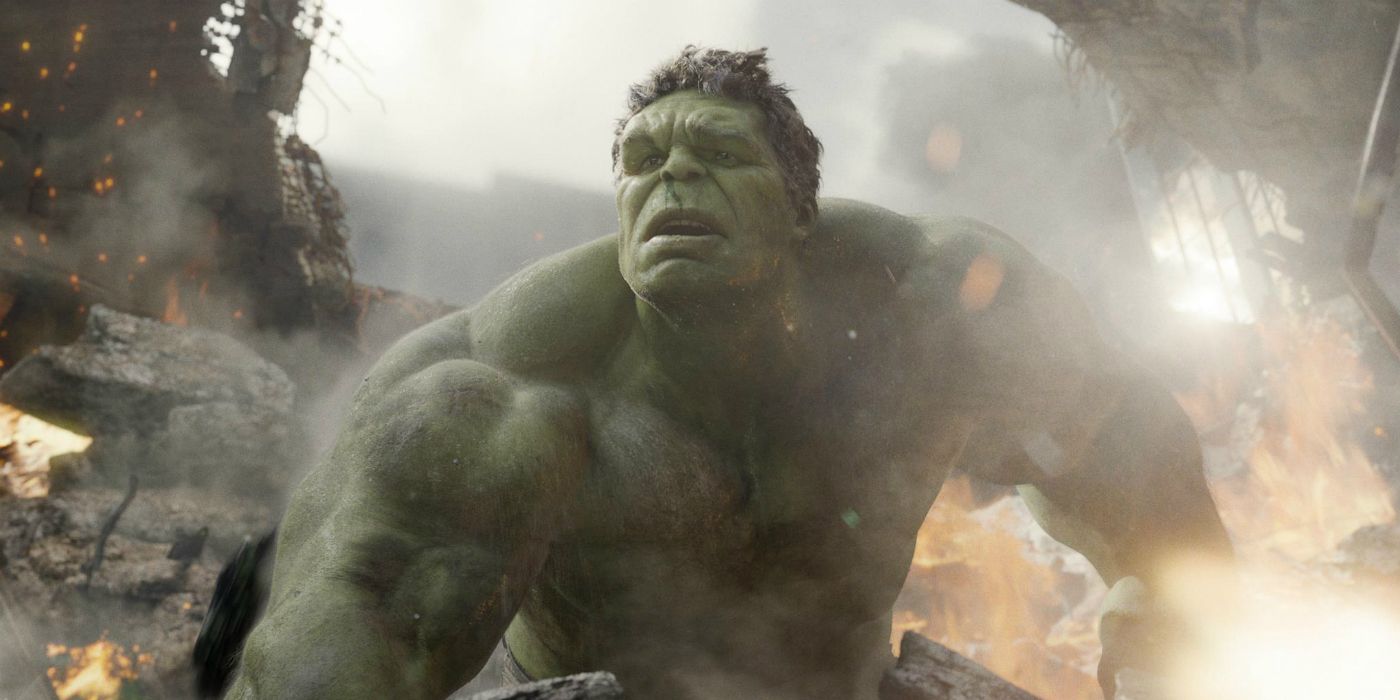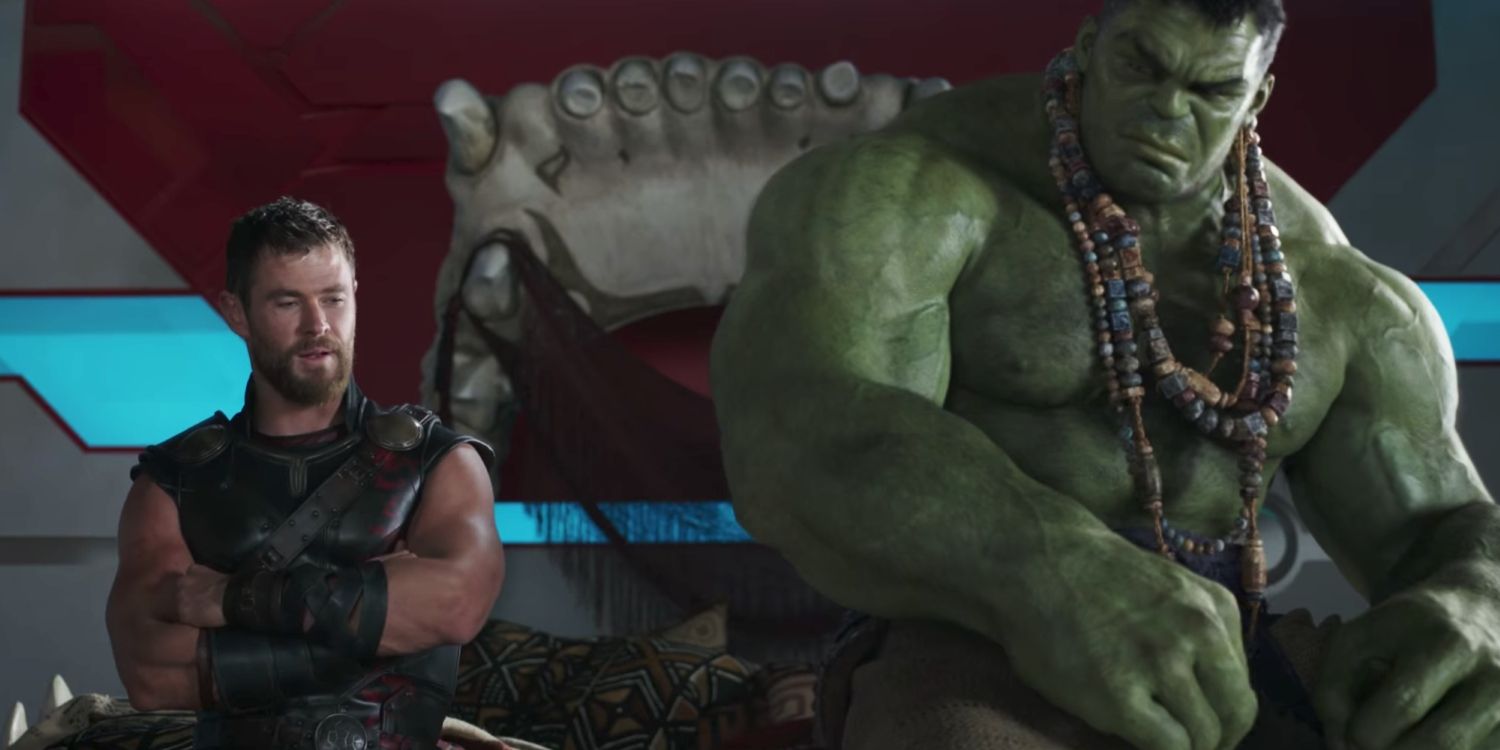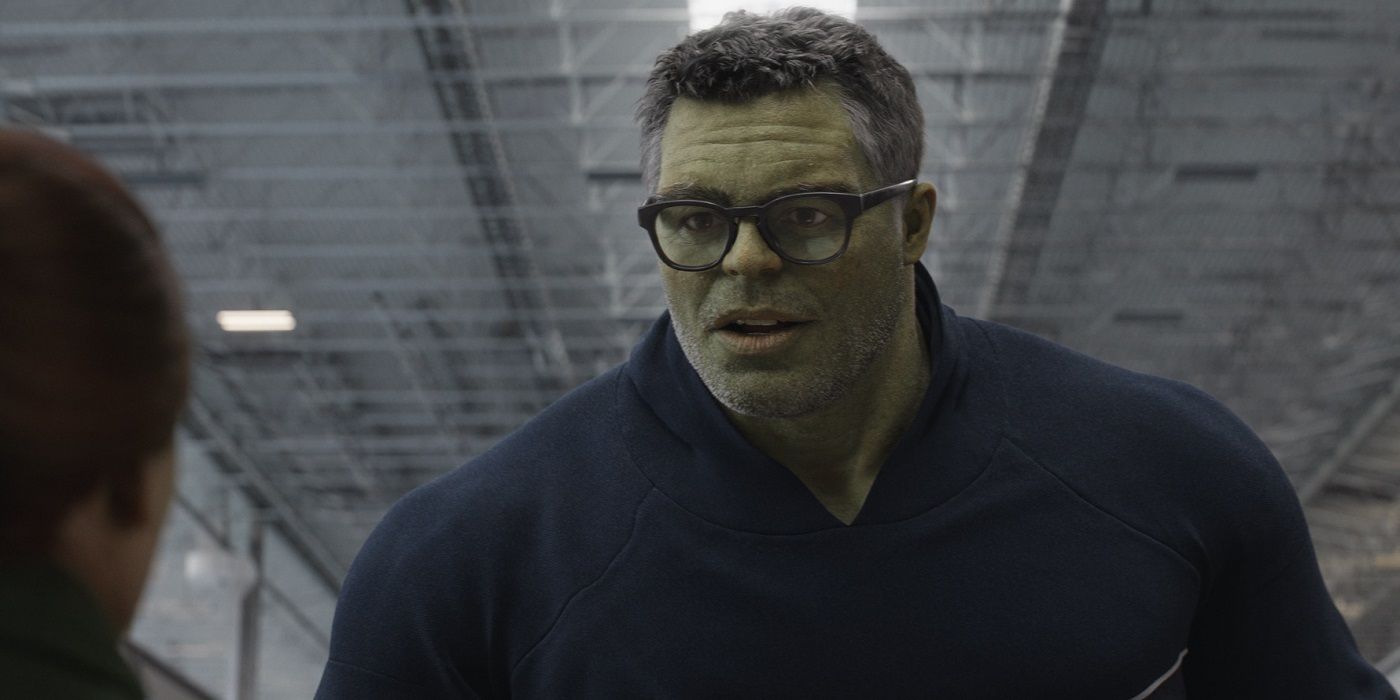The Marvel Cinematic Universe has largely failed the Hulk - and even his recent three-film arc didn't fix the long-standing character problems. Both Marvel Studios president Kevin Feige and actor Mark Ruffalo have suggested they see Thor: Ragnarok, Avengers: Infinity War, and Avengers: Endgame as a loose "Hulk trilogy." Feige has always allowed actors themselves to have input into their characters' stories, and he and Ruffalo figured out a journey that they believed would work for the Hulk.
At heart, the Hulk is a Jekyll and Hyde-type character, and the MCU brought these two personas into a head-on collision. In Thor: Ragnarok, Thor was shocked to learn that the Hulk had been living on the planet Sakaar for two years, with the Banner identity completely submerged. When Bruce Banner was finally restored, he was shaken to learn just how long he'd been out, and feared he'd never return if he transformed again. Fortunately, Bruce was proven wrong; the arc took a twist in Avengers: Infinity War when the Hulk turned back into Banner and then refused to come out and play again. The story was resolved in Avengers: Endgame, which revealed that Bruce had managed to work out a solution, blending the two personalities into "Professor Hulk."
On paper, this has the makings of a fascinating story; indeed, it's drawn from some of the best comics by Peter David. There's just one problem: it didn't come together to fix the issues that have plagued the Hulk since the early days of the MCU.
Hulk Was Limited By Character Movies Rights
The Hulk is one of Marvel's most iconic superheroes, a brand almost as strong as the Jade Giant himself. For all that's the case, his big-screen presence in the MCU is pretty muted - and that's mostly due to legal issues. Marvel regained the production rights to the Hulk back in 2005, but the distribution rights still sit with Universal, who have the right of first refusal to distribute any future Hulk films. That wasn't a problem for 2008's The Incredible Hulk, because back then Marvel didn't have a distribution network of their own (all other Phase 1 films were distributed by Paramount). But in 2009, Marvel was purchased by Disney, who has one of the best film distribution networks in the world.
All that means Disney can only make more Hulk films if they offer them up to be distributed by a rival studio. Universal, for their part, seem to have no desire to give up the distribution rights. That led actor Mark Ruffalo to publicly complain about Universal. "I just want to make one thing perfectly clear today that a standalone Hulk movie will never happen," he fumed. "Because Universal has the rights to the standalone Hulk movie and for some reason they don't know how to play well with Marvel." Barring a massive change in corporate strategy at either Disney or Universal, The Incredible Hulk is the only solo Hulk film that will ever be made in the MCU.
This is why the character has exclusively been in team-ups and ensemble films since; Universal's option on the character only goes as far as solo movies. He can be a part of the Avengers or turn up to fight Thor without issue.
Early MCU Hulk Was Good But Undeveloped
Edward Norton had originally played Bruce Banner in The Incredible Hulk, and was expected to reprise the role in The Avengers. Instead, Marvel chose to replace him with Mark Ruffalo. They released a terse statement that they were looking for "an actor who embodies the creativity and collaborative spirit of our other talented cast members," a somewhat snide remark that they never explained. It seems pretty clear the two parties had some serious behind-the-scenes conflicts, possibly connected to Norton's extensive rewrites of The Incredible Hulk's script. Whatever the case, it meant that Marvel essentially reinvented the Hulk again in 2012's The Avengers.
It was a good call, and Mark Ruffalo is generally considered to be a far better Bruce Banner than Norton. What's more, Joss Whedon's Avengers script gave the Hulk quite an entertaining character arc, with Banner learning that the Hulk could be a force for good and actually choosing to unleash him during the Battle of New York. After that, though, Whedon struggled with Hulk in the sequel, 2015's Avengers: Age of Ultron, choosing a rather left-field romance plot between Bruce Banner and Black Widow, which proved somewhat divisive given it has no comic book precedent and seemed to come from nowhere.
Underpinning the pivots was the unavoidable truth that both Bruce Banner and the Hulk were relatively undefined as characters in the MCU. All the other Avengers had important arcs that Whedon could either draw upon or (quite frequently) ignore; the Hulk was a blank slate. And Whedon only had so much time he could dedicate to the Green Goliath, meaning the Hulk never got the chance he deserved to shine.
Hulk’s Three-Movie Arc Was Simplistic & Disjointed
That explains the context of the three-movie arc devised by Mark Ruffalo and Kevin Feige. They were aware the Hulk was being under-utilized, but also by now had come to accept the fact they'd never be able to make another solo Hulk film. The resulting three-movie character arc is, therefore, really something of a second-best; and, frankly, it's not a very good one. The basic concept is lifted from Peter David's classic "Professor Hulk" story, which treated the Hulk as a sort of multiple personality disorder, and forced the minds of Bruce Banner and the Hulk to confront one another.
Unfortunately, Marvel Studios couldn't match David's story. There's a sense in which that was inevitable; David is a particularly skilled writer, and his Incredible Hulk run naturally focused on the titular character. In contrast, the Hulk was a secondary character in Thor: Ragnarok and part of a massive ensemble in both Avengers: Infinity War and Avengers: Endgame.
While Thor: Ragnarok writer-director Taika Waititi set up the arc fairly well, the third and fourth Avengers films dropped the ball. It was unclear what was going on with the Hulk in Avengers: Infinity War; the Russo brothers spent months fielding questions about why the Hulk was scared of Thanos, which wasn't the story they'd been attempting to tell at all. Editing decisions meant Infinity War's Professor Hulk transformation was cut, and instead the biggest character moment in the Hulk's entire MCU history happened off-screen, with Bruce Banner apparently merging with the Hulk after spending eighteen months in a Gamma lab.
Instead, Hulk's defining part across all the movies was his snap to bring back Thanos' victims, something that doesn't at all rely on any of the journey to get there. The Peter David story was boiled down to its simplest elements, a story that was then told in a remarkably disjointed way.
It’s Going To Be Hard For Marvel To Fix Hulk In Phase 4 & Beyond
At this stage, it's hard not to conclude that the MCU has mostly wasted the Hulk's potential; and this is one problem that can't be cracked by eighteen months in a Gamma lab. Mark Ruffalo is believed to have just one more film left on his contract, and - because the conflict between Marvel and Universal is still unresolved - that means he'll be appearing in a final team-up movie. The Hulk's as-it-stands last outing will be as a secondary character, unable to fully get to the heart of his character once more.
After all, what Hulk story can Marvel tell? In the comics, Professor Hulk worked because it was a deviation from the status quo, a break from the norm that thrilled readers. Neither the Hulk nor Bruce Banner really has much of a status quo in the MCU to deviate from, which is one reason the Professor Hulk twist fell flat. Avengers: Endgame essentially left the Hulk unrecognizable, a brawny being whose mind seems more like Bruce Banner's than a blend of the two, weaker than before and with a permanently crippled arm. The MCU's Hulk could perhaps serve as a mentor to the next generation of Avengers before bowing out, but that's about it. And the Hulk deserved far more.

